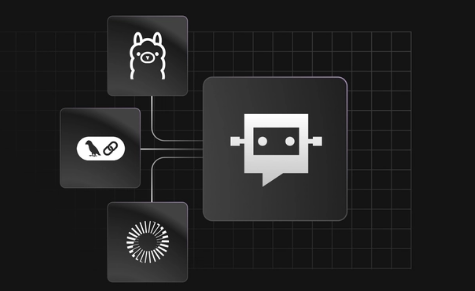How to Identify the Best AI Agents for Enterprise Needs

Artificial intelligence is no longer experimental for enterprises, it’s becoming a core driver of growth, efficiency, and customer engagement. In fact, 29% of organizations say they’re already using agentic artificial intelligence, and 44% plan to implement it within the next year to save money, improve customer service, and reduce the need for human intervention. According to Gartner, by 2025, 80% of customer service and support organizations will also be applying generative AI technology to enhance productivity and customer experience.
With adoption accelerating, enterprises are under pressure to identify the best AI agents for enterprises that align with their unique operational needs. The challenge is that not all AI agents are created equal. While some excel at automating workflows, others are designed for customer-facing interactions, data analysis, or process optimization. The key lies in evaluating which framework or agent best suits your enterprise goals.
Key Considerations for Selecting Enterprise AI Agents
- Scalability and Performance: Enterprise operations demand AI solutions that can process massive datasets and manage thousands of interactions simultaneously without delays.
- Integration Capabilities: The best AI agents must work seamlessly with existing CRMs, ERPs, data warehouses, and collaboration tools to ensure smooth workflows.
- Customization and Flexibility: Every enterprise has unique processes. Look for AI agents that can be tailored for specific industries or use cases, from finance to healthcare.
- Security and Compliance: With stricter regulations around data, enterprise AI must prioritize compliance (e.g., GDPR, HIPAA) and ensure strong encryption and privacy safeguards.
- Vendor Ecosystem and Support: A reliable vendor ecosystem with ongoing updates, documentation, and support ensures that your AI agent remains future-proof.
Steps to Evaluating AI Agents for Enterprises
Identifying the best AI agents for enterprises isn’t just about features, it’s about finding the right fit for your organization’s unique goals, infrastructure, and future growth. A structured evaluation process ensures that enterprises avoid costly mistakes and maximize ROI.
1. Define Business Objectives
Start by mapping out the specific problems AI agents should solve, whether that’s automating customer support, improving workflows, or analyzing data for better decision-making.
2. Assess Technical Compatibility
Check whether the AI agent integrates seamlessly with your existing systems (ERP, CRM, cloud platforms). Compatibility ensures smoother adoption and reduces IT overhead.
3. Run Pilot Projects
Before committing to a full-scale rollout, test the AI agent in a controlled environment. Pilot projects help validate performance, accuracy, and scalability.
4. Gather Feedback from Stakeholders
Include end-users, IT teams, and decision-makers in the evaluation process. Their feedback will highlight usability issues and practical challenges.
5. Measure ROI and Long-Term Value
Look beyond immediate efficiency gains. Consider long-term scalability, adaptability, maintenance costs, and how the AI agent contributes to strategic goals.
6. Scale Gradually
Once validated, expand implementation in phases. This approach minimizes disruption while ensuring continuous improvement and learning.
Read Also: Residential Water Bottle Filler: A Convenient and Sustainable Choice
Common Use Cases of Enterprise AI Agents
The best AI agents for enterprises are versatile, serving multiple functions across departments. Their applications go far beyond customer support, enabling smarter operations and data-driven decision-making. Here are some of the most impactful use cases:
1. Customer Support Automation
AI agents can handle FAQs, manage multi-channel inquiries, and escalate complex issues to human agents, reducing wait times and improving customer satisfaction.
2. Workflow and Process Optimization
From automating approvals to managing scheduling, AI agents streamline internal operations, saving time and reducing errors.
3. Data Analysis and Insights
AI agents can quickly process and analyze large volumes of structured and unstructured data, providing actionable insights for business strategy and forecasting.
4. Fraud Detection and Compliance
Enterprises in finance, insurance, and healthcare rely on AI agents to monitor transactions, flag anomalies, and ensure adherence to strict compliance regulations.
5. Personalized Customer Experiences
Retailers and service providers use AI agents to recommend products, customize offers, and deliver hyper-personalized user journeys that boost engagement and sales.
6. Knowledge Management and Employee Support
AI agents act as digital assistants for employees, helping them find information, answer HR-related queries, or guide them through workflows.
Criteria for Measuring Long-Term ROI of Enterprise AI Agents
For enterprises, the true value lies in long-term sustainability and scalability. Evaluating ROI over time ensures that the investment delivers continuous benefits rather than one-off improvements.
Key Criteria to Consider:
- Scalability: The AI agent should adapt to growing data volumes, expanding teams, and new business requirements without major overhauls.
- Adaptability: Look for solutions that can evolve with changing technologies, customer behaviors, and industry regulations.
- Maintenance Costs: Beyond initial setup, enterprises must consider ongoing expenses like updates, retraining, and support.
- Cross-Departmental Use: Agents that serve multiple functions (customer service, HR, operations) provide greater enterprise-wide ROI.
- Employee Adoption: High usability and intuitive interfaces increase adoption rates, ensuring that the technology is actually used effectively.
- Measurable Outcomes: Track metrics such as improved efficiency, cost savings, and enhanced customer experience to validate ROI over time.
Decision-Maker’s Checklist for Selecting AI Agents
For CIOs, CTOs, and other enterprise leaders, choosing the best AI agents for enterprises can feel overwhelming. A structured checklist helps cut through the noise and ensures the selection process aligns with organizational needs.
Key Questions to Ask Before Committing:
| Criteria | What to Look For |
| Business Alignment | Does the AI agent directly support core business goals and KPIs? |
| Integration | Will it connect smoothly with existing CRMs, ERPs, data warehouses, and tools? |
| Scalability | Can the solution grow with the organization as data volumes and demands increase? |
| Security & Compliance | Does it meet regulatory requirements (GDPR, HIPAA, CCPA) with enterprise security? |
| Customization | Can the agent be tailored to industry-specific needs? |
| Vendor Reliability | Does the provider offer strong support, regular updates, and proven success? |
| User Adoption | Is the interface intuitive enough for employees to use with minimal training? |
| ROI Measurement | Are there clear metrics to track performance and long-term impact? |
Final Words
Identifying the best AI agents for enterprises requires more than just comparing features. It is about aligning technology with business strategy, ensuring seamless integration, and planning for long-term scalability. Enterprises that follow a structured evaluation process, consider real-world use cases, and apply decision-making frameworks will be better positioned to unlock the full potential of AI agents.
As adoption accelerates, the most successful organizations will be those that strike the right balance between innovation and governance, deploying AI agents that not only improve efficiency but also enhance trust, security, and customer experience. The future of enterprise operations is undeniably shaped by AI, and the time to act is now.





